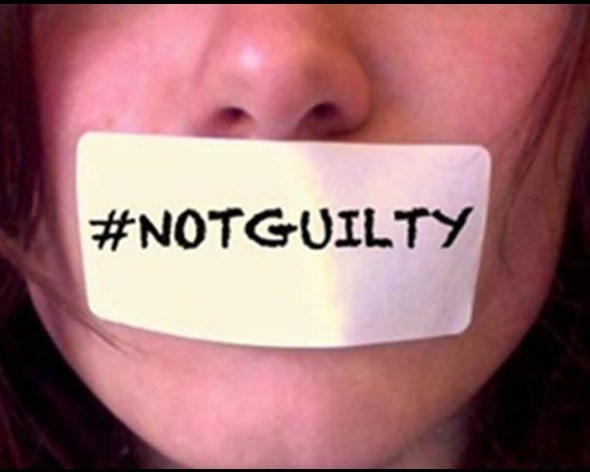11 May 2015
Martin Hewitt: Building on the success of the Not Guilty campaign
The bravery shown by Ione Wells and other victims of sexual assault in recent weeks has been truly inspiring.
The #NotGuilty campaign, which has gained huge support after Ione wrote a heartfelt open letter to the man who sexually assaulted her that was published in the Cherwell Oxford student newspaper, has empowered hundreds of victims to speak out about their experiences and affirm the message that the only person to blame for a sexual assault is the offender.
I admire the people that have stepped forward as part of this campaign, but we have to question the circumstances that make it necessary in the first place.
Across our society, judgements are still made about victims and how they came to be raped. The way somebody is dressed, how much they’ve had to drink and walking home alone are still factors people point to in rationalising why a person has become a victim of a violent and traumatic attack. Indeed, even members of our own criminal justice service, including police officers, have been found to possess some of these attitudes in the past, but let me be clear there is no place for these views in modern society, or policing.
Such claims become even more toxic when they deter other victims from coming to the police through fear that they won’t be believed or, far worse, that they will be blamed. Research tells us that only about 20 per cent of those who are raped or sexually assaulted report it to the police. This means that the vast majority of victims have no opportunity to access justice and rapists who commit such horrendous acts are avoiding prosecution.
We want more people who are raped or sexually abused to report it to us so that we can help them access criminal justice, disrupt and prosecute offenders, and most importantly provide a route into other specialist support services to assist survivors in their recovery. An accurate profile of offending will also help us do all that we can to prevent abuse from taking place.
In the past, the police approach has not been good enough and victims have not had the confidence to come forward, but in recent years we have made significant improvements.
Our focus is now squarely on victims of abuse and their needs. We’ve trained specialist officers, introduced early evidence kits, provided greater access to sexual assault referral centres and worked much more closely with specialist support services. I personally have been working closely with the Director for Public Prosecutions to drive through an action plan which addresses some of the key issues in the criminal justice system that may have been preventing some rape cases from resulting in a successful prosecution.
Recent statistics have shown that reporting of sexual offences are up by 32 per cent over the last year, with prosecution and conviction rates also rising. This shows that we are moving in the right direction. Many more victims are now coming forward knowing that they will be listened to, treated sensitively and with respect and that their allegations will be taken seriously, but there is still more work to do.
I hope that the #NotGuilty campaign helps other people who’ve been abused to feel that they aren’t alone or to blame and encourages them to share their experiences with family or friends and seek help to deal with what has happened. There should never be pressure placed on a victim to wave anonymity, but where they choose to do so that is a brave decision that we should support.
From a police perspective, I would like to build on this campaign by calling on survivors of abuse to trust the police and report crimes to us. The most important thing is helping victims of abuse to become survivors. For some that may be through the criminal justice system. For others waiving their anonymity and campaigning to help others. Whichever route is right for them, the police and society must support them.
National Police Chiefs’ Council Lead for Adult Sexual Offences, Assistant Commissioner Martin Hewitt.
Contact information
Communications office
By phone: 0800 538 5058
By email: press.office@npcc.police.uk


